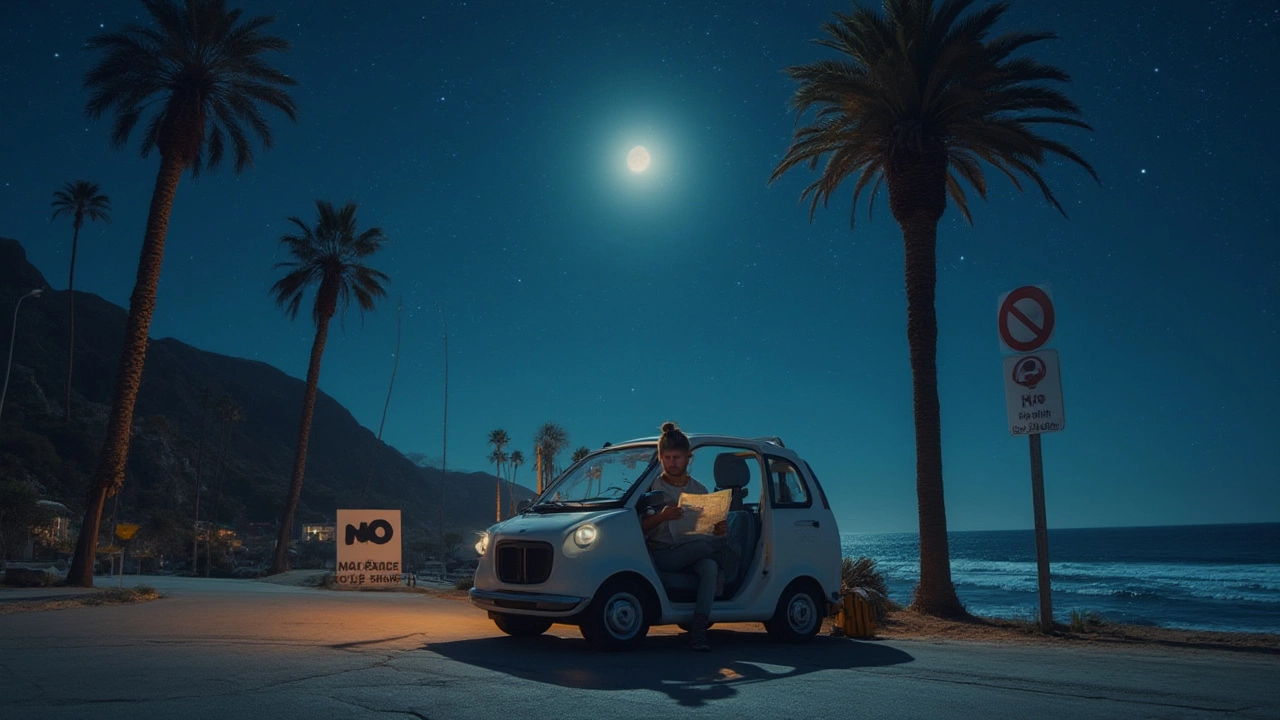Sleep in Car on California Beaches – What You Need to Know
If you’ve ever dreamed of crashing your car on a sunny California shore, you’re not alone. The idea of waking up to waves and sunrise is pure magic, but the reality can be tricky. You have to juggle local laws, parking limits, and comfort tricks. Below is a no‑fluff guide that helps you turn that beach‑sleep fantasy into a smooth, legal experience.
Where Can You Actually Park Overnight?
The first question most people ask is: Is it even allowed? The short answer is “yes, but only in certain spots.” State beaches usually have strict parking rules, especially during peak season. Look for municipal lots that stay open after hours, state park lots that allow overnight stays, or designated RV areas that also permit cars. Free beach camping in California articles point out that places like San Clemente State Beach and Pismo State Beach have designated overnight parking zones, but you must arrive early and pay the nightly fee.
Another reliable trick is to check local city websites for “overnight parking” signs. If you see a sign that says “No Overnight Parking,” move on. If the sign is missing or only mentions “24‑hour parking,” you’re likely good to go. Always keep a photo of the sign in your phone – it can save you a ticket later.
Staying Safe and Comfortable in Your Car
Once you’ve found a legal spot, make the night comfortable. Crack a window just enough for fresh air; a towel rolled up can block the gap and keep bugs out. Use a breathable car‑sleep blanket or a sleeping pad to avoid the cold metal floor. If you have a sunshade, pull it down for privacy and to keep the interior from heating up during the day.
Security matters, too. Lock all doors, hide valuables out of sight, and park with the tailgate up if you have a hatchback. Many travelers keep a small flashlight and a portable charger within arm’s reach. A quick walk around the area before you settle in helps you spot any potential trouble.
Don’t forget to mind the local wildlife. In coastal areas, seagulls love food scraps, so store any snacks in airtight containers. Also, be aware of tide times – set an alarm to avoid being surprised by a rising tide.
Finally, respect the beach. Leave no trace, pack out everything you bring in, and keep noise levels low. The next camper will thank you, and you’ll keep good vibes with the locals.
With these tips, sleeping in your car on a California beach becomes a realistic, low‑cost adventure. Check the latest parking rules, pick a spot with a legal overnight option, set up for comfort, and you’ll be ready for that sunrise over the Pacific.
-
 VIEW POST
VIEW POSTCan You Sleep in Your Car at California Beaches? Rules, Risks & Tips
Jul, 27 2025|0 CommentsThinking of sleeping in your car at California beaches? Here's what you need to know about local rules, risks, and smart tips to avoid fines or trouble.